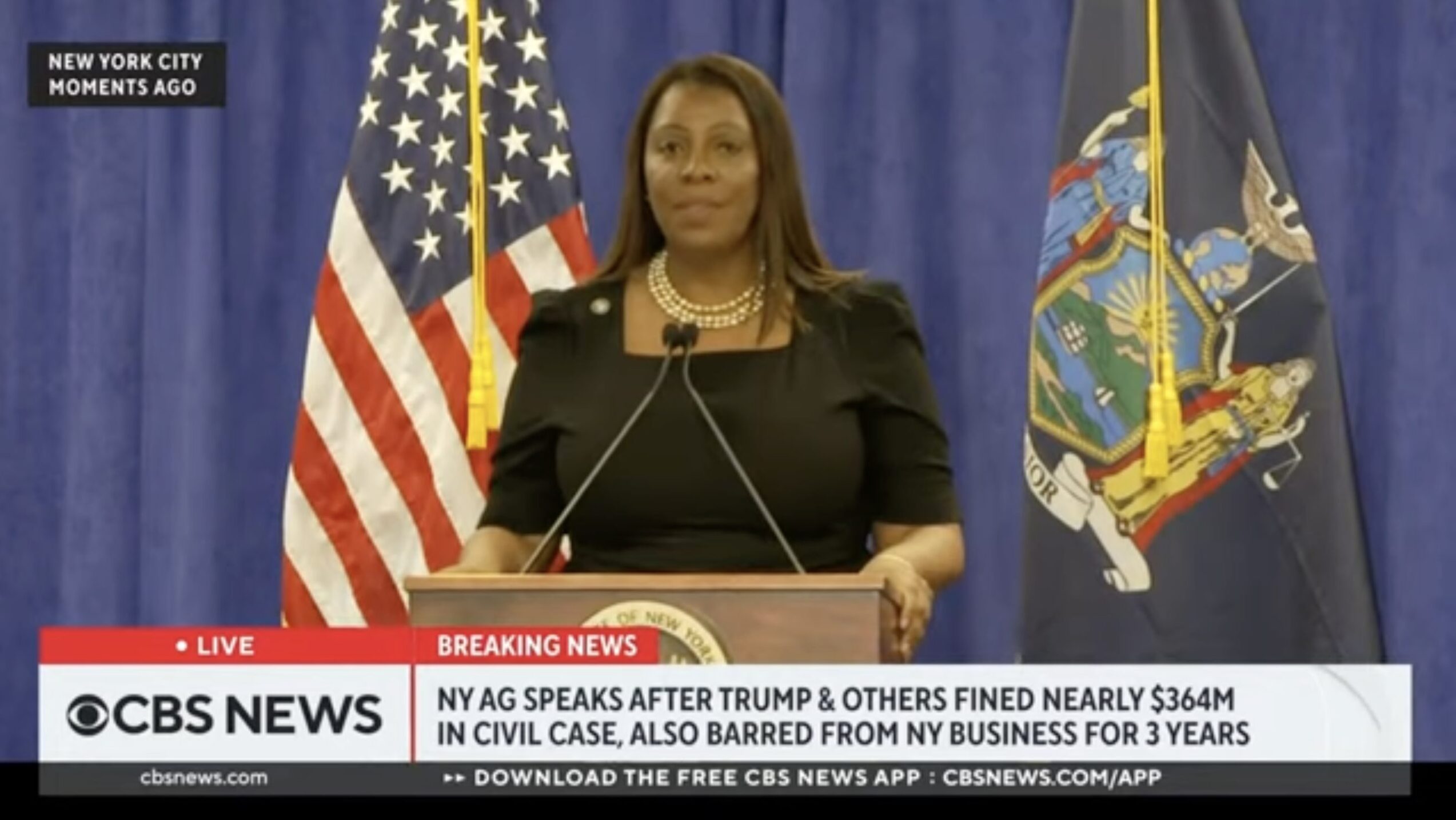A New York appellate court has overturned a civil fraud penalty of $515 million imposed on former President Donald Trump, deeming the judgment unconstitutional. The ruling, issued by a split five-judge panel of the New York Appellate Division, First Judicial Department, comes amid ongoing legal challenges as Trump campaigns for the 2024 presidential election.
Explainer New York Court Overturns $454 Million Fine Against Trump
The penalty, initially set at $354 million with an additional $100 million in interest, was ordered by Judge Arthur Engoron in a case brought by New York Attorney General Letitia James. Trump was accused of inflating his personal wealth to secure more favorable loan terms. However, the court noted that there were no victims in the transactions involved.
In their decision, Judges Dianne T. Renwick and Peter H. Moulton described the $464 million verdict as "excessive" and a violation of the Eighth Amendment of the United States Constitution. They stated, "While the injunctive relief ordered by the court is well crafted to curb defendants’ business culture, the court’s disgorgement order is an excessive fine."
Justice Moulton acknowledged that the Supreme Court had previously found Trump liable but expressed concern over the penalty's magnitude. "The immense penalty in this case is troubling," he remarked during the proceedings. "How do you tether the amount that was assessed by the Supreme Court to the harm that was caused here where parties left these transactions happy?"
The ruling comes nearly a year after the court heard legal arguments in September 2024. Trump's legal team had argued that the case represented a "clear-cut violation of the statute of limitations." Several justices appeared receptive to this argument, questioning the calculation of the penalty.
Justice David Friedman, in a separate opinion, contended that James lacked the authority to bring the case, suggesting that the entire complaint should be dismissed. He noted, "I find it remarkable that a three-justice majority of this five-justice panel believe that the judgment in favor of the Attorney General should not stand."
The case has drawn bipartisan criticism, with some observers asserting that it was politically motivated. Former New York Governor Andrew Cuomo stated, "If his name was not Donald Trump, and if he wasn’t running for president, I’m telling you that case would have never been brought."
Political commentator Jonah Goldberg also weighed in, calling the prosecution "a mistake" and highlighting its political implications. Critics have pointed out that Trump repaid the loans in question, and all parties involved benefited from the transactions.
The decision to overturn the penalty is significant as Trump continues his campaign for the presidency. The ruling may impact the legal landscape surrounding his business dealings and the broader narrative of his candidacy.
As Trump navigates these legal challenges, the implications of this ruling could resonate throughout the upcoming election cycle, potentially influencing voter perceptions and campaign strategies.
Why it matters
- The court deemed the $515 million penalty unconstitutional, impacting Trump's ongoing legal battles as he campaigns for the 2024 election.
- Judges criticized the penalty as excessive and lacking victims, raising questions about the fairness of the legal process against Trump.
- The ruling may shift the narrative around Trump's business dealings, influencing public perception and campaign strategies ahead of the election.
What’s next
- Trump's legal team may seek to dismiss the entire complaint based on the ruling's implications.
- The Attorney General's office could appeal the decision, potentially prolonging the legal battle.
- Upcoming court dates and deadlines related to Trump's other legal challenges remain critical to monitor.

